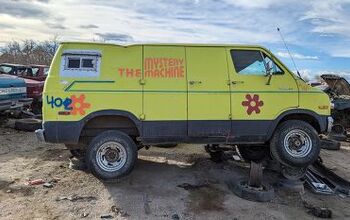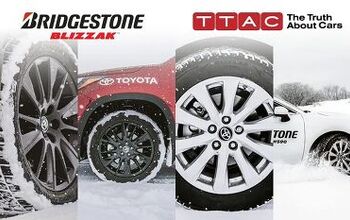"On The Beach" Part 2: An Evolutionary Dead-End
The central question of Nevil Shute's “On The Beach:" how does the human mind react to certain death? The Cliff Notes answer: it can't. As clouds of lethal radiation descend on the novel's protagonists, they cannot help but continue their lives as normal, learning shorthand and planting gardens they will never see bloom. Alas, life imitates art. While the Australian car industry swirls (counter-clockwise) down the toilet of unprofitability, a new report confirms that its government patrons cannot commit to either rehabilitating or killing off the once-proud industry. Their predicament offers a number of valuable lessons about the global car industry.
Like its unique marsupial fauna, the Australian car industry has evolved in isolation, creating atavistic vehicles which have long been sheltered from the ravages of mainstream evolution by geographic isolation and protective tariffs. While most global markets have evolved towards small, efficient, front wheel-drive cars based on global platforms, herds of large, rear wheel-drive sedans with V8 power built only for Australia still roam the outback. But as the earth flattens, even the lost continent is feeling the effects of competition. Domestically produced cars have seen their market share drop from 30 percent in 2002 to under 19 percent. The entire sector has shed a quarter of its workforce since 2005. These deeply unsustainable trends point to an obvious and ancient choice: adapt or die.
But for Australia's leaders, this choice is too stark. A recently-released government report claims that Australia can not afford to even try to compete with its Asian neighbors in the small car-oriented, developing world markets (where global automakers are finding profits). "In essence, we need to look at the niche— what is Australia good at?" author Steve Bracks wonders. One needn't strain overly to find snarky answer to Bracks mission-central rhetorical question; the statistics in his own report scream “FAILURE” as loud as they can.
The report outlines a course of action which should seem familiar to Detroit watchers everywhere: keep building the same unwanted cars– just make them a little greener. A half-billion Aussie dollar green-car initiative accompanies the report, in hopes that the government can simply throw money at efficient drivetrains for its large cars. This effort is far too little, far too late in a world where the hybrid market is already reaching maturity based on decades-old investments in green technology. The U.S. spent three times that amount on the Partnership for a New Generation of Vehicles between 1993 and 2001– with only concepts to show for the money.
Even if Australia could build cars that the world wants, the strengthening Australian dollar is erasing any competitive advantage the industry may have had in the export market. Meanwhile, import tariffs, which currently stand at ten percent, are also being eaten away by the rising currency. With tariffs scheduled to drop to five percent in 2010, the government has every opportunity to cut the industry free now, and see how it adapts on its own. But indecision rules the day, as the Labour government considers freezing import tariffs at their current, ineffectual rate.
The irony of all this is that Australia is perfectly poised to simply shed its auto industry. With unemployment statistics holding steady at a remarkable four percent, Australia's economy actually suffers from the happy malady of overemployment. In layman's terms, this means that Australia's 60k auto industry employees could find work elsewhere, in one of the country's many profitable industries. In an era of shockingly high commodity prices, the rich mineral resources of the land of Oz offer far more viable opportunities for Australia's economy than its saurian automakers. But even this startling fact isn't enough to inspire anything resembling bold leadership Down Under.
Australia's situation offers an abundance of lessons for American observers. The first is that the quirks of individual markets are subordinate to the efficiencies of global platforms. Ford's recent announcement that future rear wheel-drive sedan platforms will be developed stateside confirms this trend, and tolls the death knell of Australia as a unique vehicle developer. A corollary lesson to this may be that the era of the large, powerful sedan is nearing its close, coming to an end in the land that gave it shelter.
The ultimate moral to the troubled narrative of Australian car production: if you aren't competitive, you will die. In the absence of real leadership from either the industry (choosing to adapt) or the government (forcing their hand by killing off tariffs), Australia's car industry will continue to wither on the vine. Half measures and failures of nerve do not deter the wheels of change. It's a fact that America's troubled industry players would do well to note.
[NB: This is the first time we (or anyone else I imagine) have ever run a father THEN son series of articles. Congrats to the Niedermeyer DNA.]
More by Edward Niedermeyer
Latest Car Reviews
Read moreLatest Product Reviews
Read moreRecent Comments
- SCE to AUX I hope they're buying good lawyers, too.
- SCE to AUX Nothing to see here. Gas prices 2021-23 were the same as they were in 2007-2008, adjusted for inflation. The R's were in charge then.https://www.randomuseless.info/gasprice/gasprice.html
- VoGhost Just reminding us all that we have to tolerate dealers (many of whom are billionaires) in the US if we want new legacy ICE vehicles because the dealers pay for the campaigns of local politicians, with our money.
- 1995 SC I'm still trying to get past the fact that the Red Bull guy is married to a Spice Girl.
- Ravenuer Not into F1. Started watching NASCAR back when they raced actual cars. (yeah I'm that old). Not any more. They aren't "stock cars" now. Not even close. Even drag races don't interest me anymore. Races are over in 3 seconds.


































Comments
Join the conversation
RF, We're both wrong. Coriolanus was the title character in a Shakespeare play. The proper spelling is coriolis
they did a remake of the movie not too long ago but i recomend the book over it nev shute is one of my favorites mitsubishi 380's were an ok car and by the end they were giving away so many extras they were good value too people just didnt buy them. holden is just staying above water because of its export programme but ford, which doesnt make their cars rhd compatible, is going to shit. holden only makes one car all the others are forien and ford only makes two so its not like the world is going to be overly effected by any demise, we will just have to drive chargers or 5's